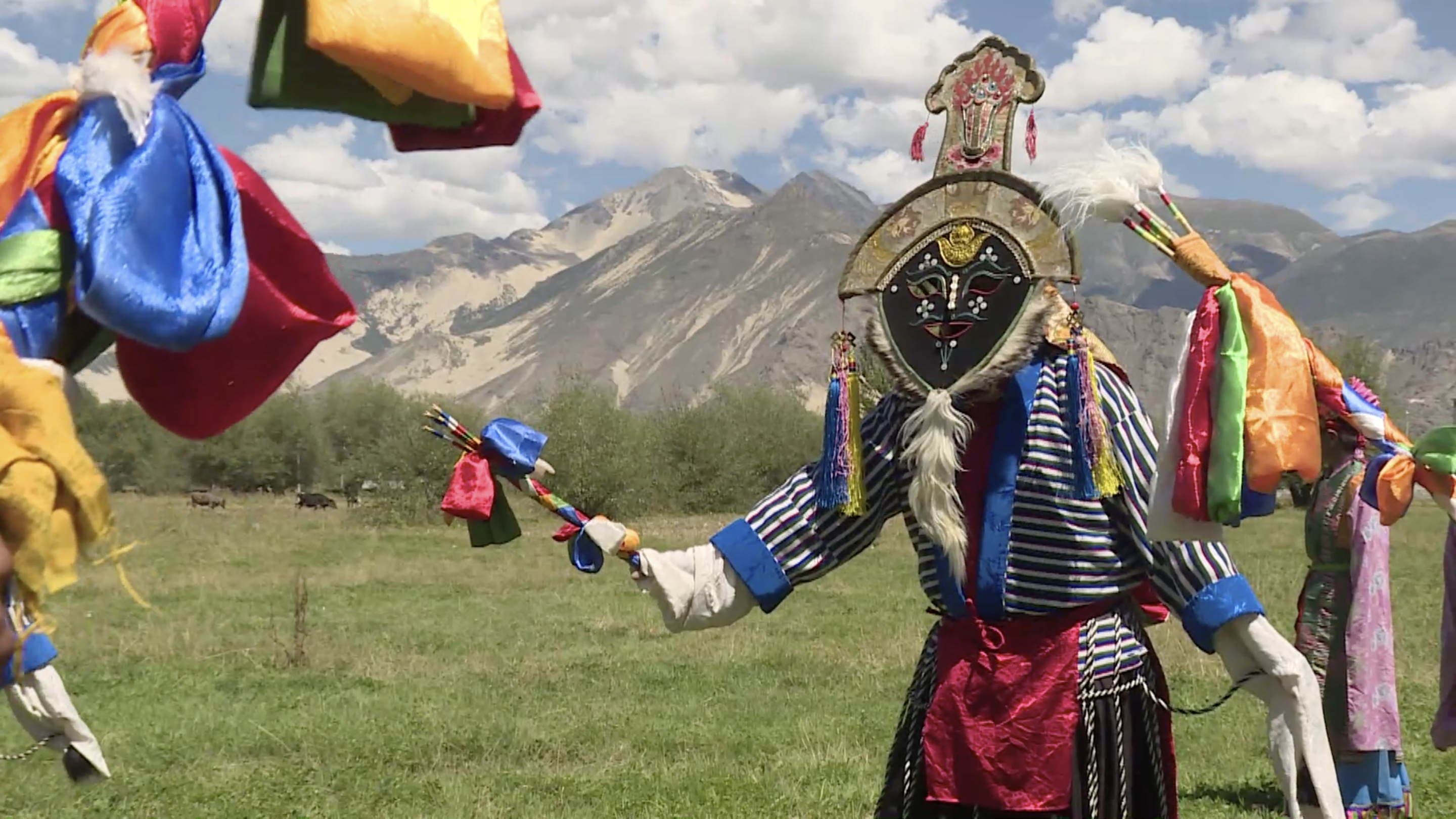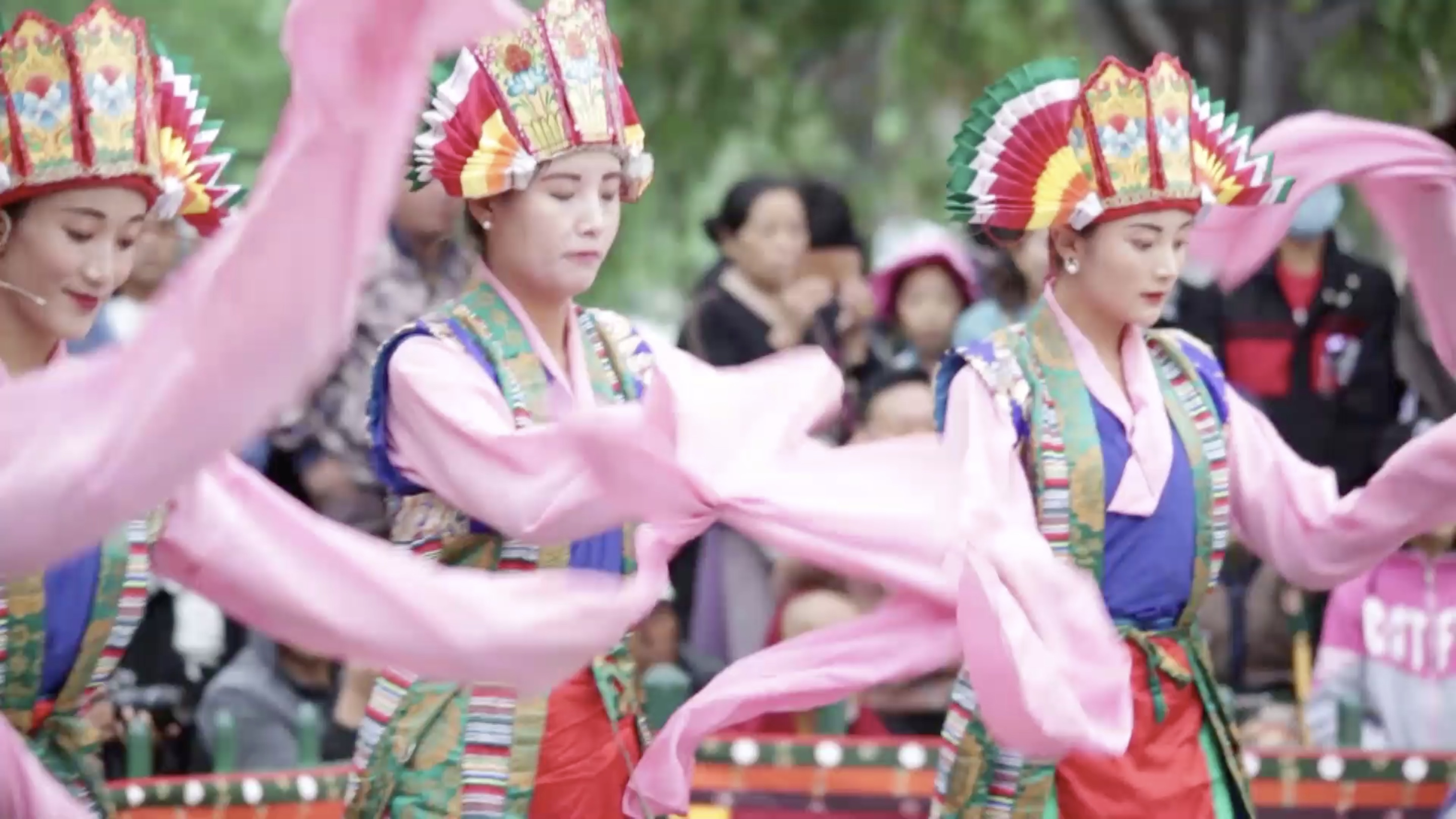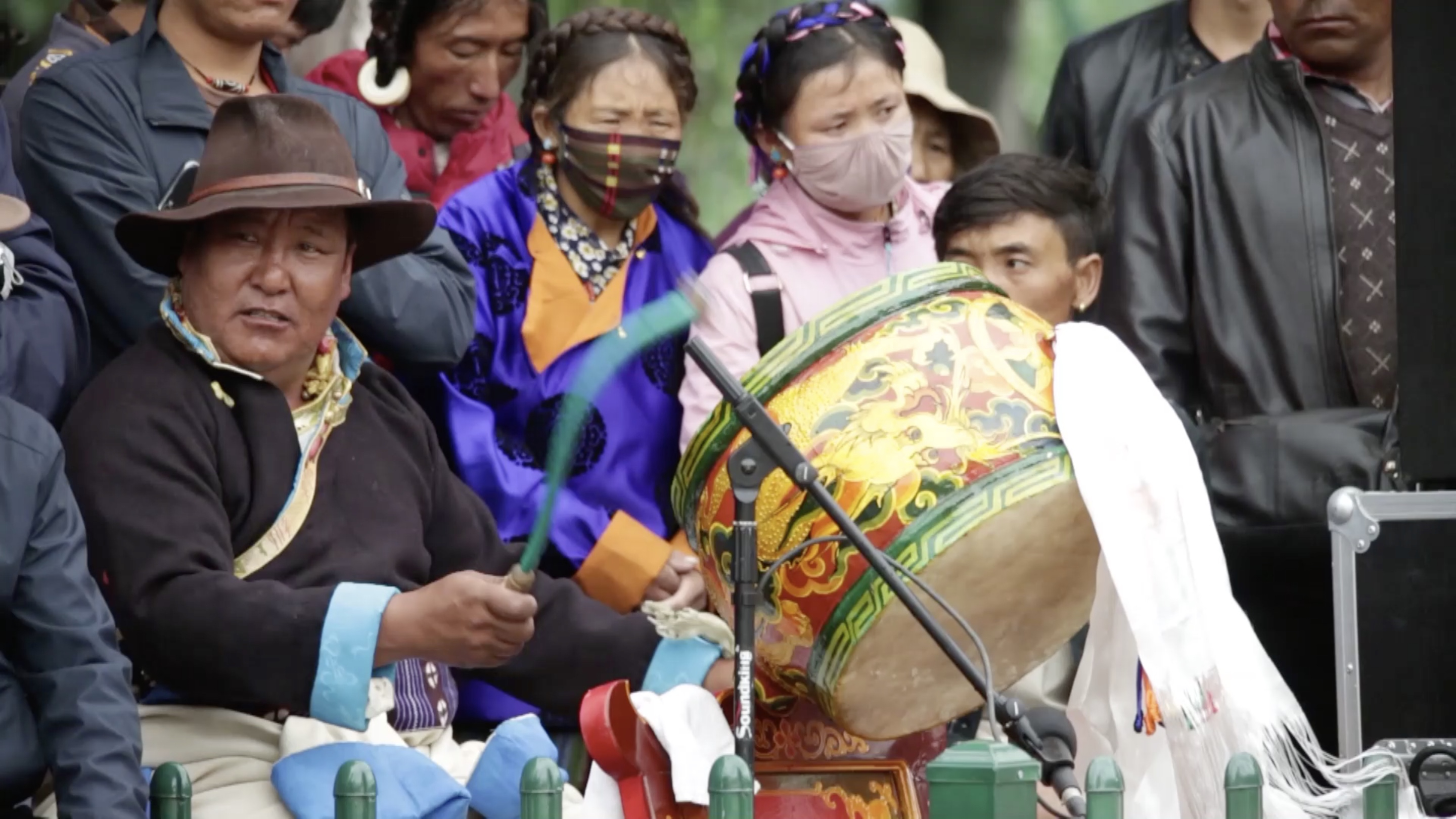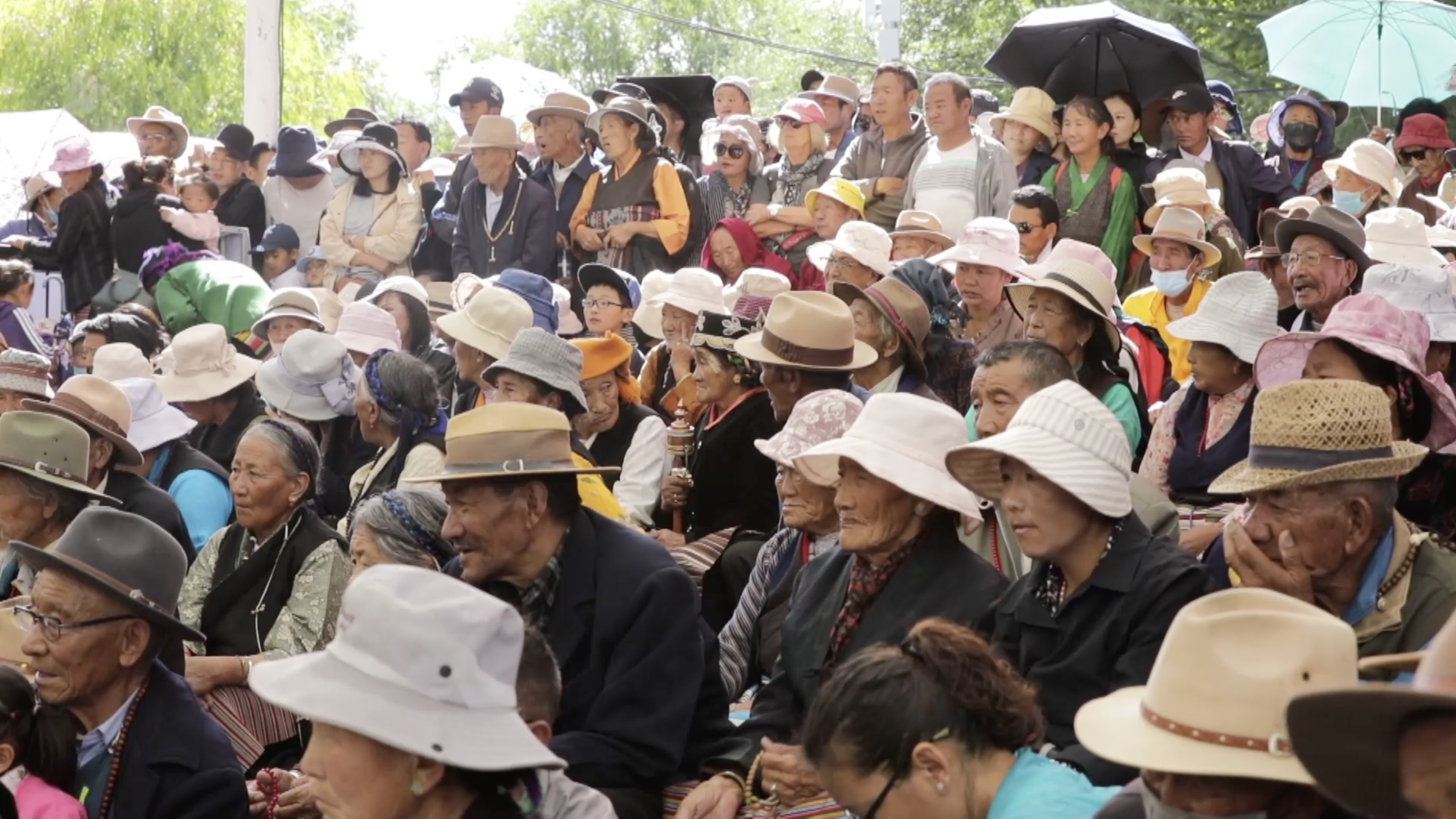

In Lhasa, the capital of southwest China's Tibet Autonomous Region, elite opera troupes are performing to the public during the annual Shoton Festival, also known as the Yogurt Festival. The shows include singing, dancing, and improvised comedy.
Rhythmic and dynamic, Tibetan opera attracts many people in Lhasa and its surrounding areas especially during important celebrations like the Shoton Festival.
As with most performers, practitioners of Tibetan dance make it look easy. But off stage, it takes years of grueling practice.

Elite Tibetan opera troupes are performing at different locations in Lhasa, southwest China's Tibet Autonomous Region, during the Shoton Festival which concludes on September 5, 2019. /CGTN Photo
It's included in UNESCO's Intangible Cultural Heritage list, and it incorporates many elements including singing, dancing and acrobatics.
Yundansangzhu has been practicing and performing for almost 40 years.
"Tongdong Gyibo, founder of Tibetan Opera, created this blue mask 600 years ago based on his image and then set a position in every troupe to discipline those who violate the rules," he said.

A drummer from a Tibetan opera troupe is getting prepared for the first show of this year's Shoton Festival in Norbulingka park, Lhasa, southwest China's Tibet Autonomous Region, August 30, 2019. /CGTN Photo
They practice a lot when they are not doing farm work.
And the team members believe the old ways of making costumes are the best ways. For them, it's a deep love.
Baima, a member of the troupe who has been making such costumes for years, explained the reasons.
"I've loved dancing since I was a child. I learned dancing and singing and I love them. That's why I was selected for this troupe," she said.

Tibetan opera show is usually held during important celebrations and draws great attention. /CGTN Photo
A Tibetan opera show can last for hours and even days. It needs a good memory and a superb physique, particularly at this altitude.
"We will have new members soon, and we will pass on our traditional culture to the next generation," said Yundansangzhu.
There are more than 150 such troupes in the region. For them, performing is a tradition, a need and a love.
(Video filmed by Fan Xin, Yi Xi)

Copyright © 2018 CGTN. Beijing ICP prepared NO.16065310-3
Copyright © 2018 CGTN. Beijing ICP prepared NO.16065310-3